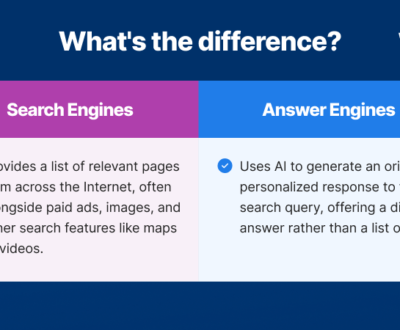Private Equity Due Diligence: Your 5-Step Guide
- September 23, 2024
- Blog
What is private equity due diligence?
Private equity due diligence is the process of evaluating businesses to determine if your firm can earn high returns from purchasing and selling them.
Due diligence for private equity firms like yours isn’t easy. It’s a challenge to identify, pursue, and close deals that will generate a substantial return on investment (ROI). You have to thoroughly investigate each opportunity to see if it has the potential for high returns.
But the due diligence process is complex, and if you’re at all unfamiliar with it, it can feel like a lot to navigate. That’s why this page will go over some basic, must-know info about private equity due diligence, including:
Keep reading to find out more about each of those topics!
What is private equity due diligence?
Due diligence for private equity firms is the process of researching and evaluating businesses that your firm is considering buying so that you can determine if they would make good purchases. You need to know if a business is one that your firm can successfully turn around and get high returns from, and for that, you need to know a lot of information about the business.
The two phases of private equity due diligence
We’ll break down due diligence into a series of specific steps in a moment, but to start with, it can be helpful to define the two main phases that make up the process. The first phase is the exploratory phase, and the second is the confirmatory phase. We’ll define each of those below.
Exploratory phase
In the exploratory phase, your firm is giving a business an initial sweep to see if they’re a good fit for your needs. Do they have the main assets you look for when purchasing a business? Do they seem like a business you can successfully generate high returns on? In this phase, you’re just looking for immediate red flags that tell you, “Nope, this isn’t going to work.”
Confirmatory phase
If a business passes the exploratory phase, it’s time to dig in a little deeper with the confirmatory phase. This is where you double-check all of your assumptions from the previous phase to make sure you have accurate information about everything, and it’s where you look into more specific details than you did initially. You want to make sure no issues slip past you before you decide on a purchase.
5 steps to due diligence for private equity firms
Now that we’ve covered the main two phases of due diligence, let’s talk about the steps you should follow when performing due diligence for a particular company. Due diligence may not look exactly the same for every firm, but these steps cover the basic process that most firms will use. Those steps include:
- Conducting industry research
- Doing a quality of earnings analysis
- Evaluating potential ROI
- Performing legal due diligence
- Coming up with an exit strategy
Let’s get into each one!
1. Conducting industry research
Before you start evaluating an individual company, you should take a look at the overall industry it operates in. What does their market currently look like? What are their competitors doing? What unique opportunities and challenges come with their field?
Answering these questions is the first step to determining if a particular business is a good choice for you. In some cases, you may not feel confident getting involved in a specific industry for one reason or another.
2. Doing a quality of earnings analysis
The next step in the due diligence process is to perform a quality of earnings (QoE) analysis. A QoE analysis is where you look at a company’s past income statements and filter out any abnormally large revenue or expenses to figure out what that company could reasonably be expected to earn on a regular basis.
A QoE analysis is part of financial due diligence, where you look at how a target business has been performing in terms of incoming and outgoing funds. You want to find a business whose finances you feel your firm can successfully manage and improve.
3. Evaluating potential ROI
The whole point of buying a company is to turn it around and sell it again for a high profit. So, a crucial part of the due diligence process is assessing if you can successfully do that with a target company.
This is where we have to be a little vague, because every firm approaches this differently. One thing you can do is figure out what it would take to earn a high ROI from the business, and then determine if the business meets those criteria. One way to do that, for example, might be to look at balance sheets.
The main thing, though, is to look for specific things in the business that you can improve. This is called operational due diligence. Are there any underperforming products that you could cut? Is the company’s marketing in dire need of an upgrade? Could the company benefit from replacing its outdated technology?
As you find these opportunities, do your best to estimate how much more value each of them would add to the business. That will give you a good sense of how much return you can get on your investment.
4. Performing legal due diligence
One of the most essential steps is to perform legal due diligence. This is where you look into a target company’s legal situation to determine if there are any significant risks that come with acquiring it. For example, you obviously wouldn’t want to buy a company that’s involved in 17 ongoing lawsuits.
Even outside of extreme cases like that, though, you may uncover legal issues — or even just gray areas where something could become an issue — that lead you to reconsider purchasing a company. Without this step, you could end up getting into a lot of problems.
5. Coming up with an exit strategy
For the final step, you should evaluate your options for selling a target business after you’re through working on it. Who would the potential buyers be? Is there a market for this type of company?
If the market for a particular company is very small, or if it seems like it might be tough to make a sale even within the existing market, you might not want to purchase the company to begin with. On the other hand, if you can identify some promising potential buyers, you can begin the acquisition with more confidence.
WebFX can elevate your marketing due diligence
When conducting due diligence, one of the most important areas to evaluate is marketing. A company can increase its value immensely by simply creating more effective marketing campaigns, so businesses with subpar marketing are some of the best ones for you to purchase.
But if you’re not an expert in marketing, you may not have the best eye for what makes a subpar marketing campaign (or how to reoptimize it to be of more value). In that case, you can benefit from partnering with a professional marketing agency like WebFX.
Our marketing due diligence services enable you to get an expert eye on your target companies’ marketing, identifying exactly where the weak spots are and what you can do to make them better and bring in higher returns when you eventually sell. If you’re interested in partnering with us, just give us a call at 888-601-5359 or contact us online today!
About us and this blog
We are a digital marketing company with a focus on helping our customers achieve great results across several key areas.
Request a free quote
We offer professional SEO services that help websites increase their organic search score drastically in order to compete for the highest rankings even when it comes to highly competitive keywords.




